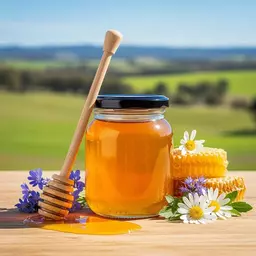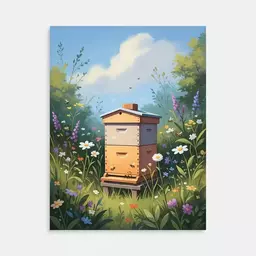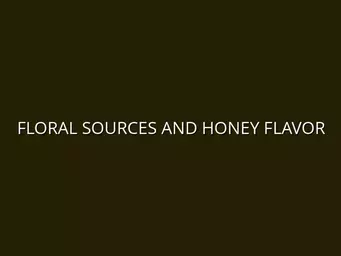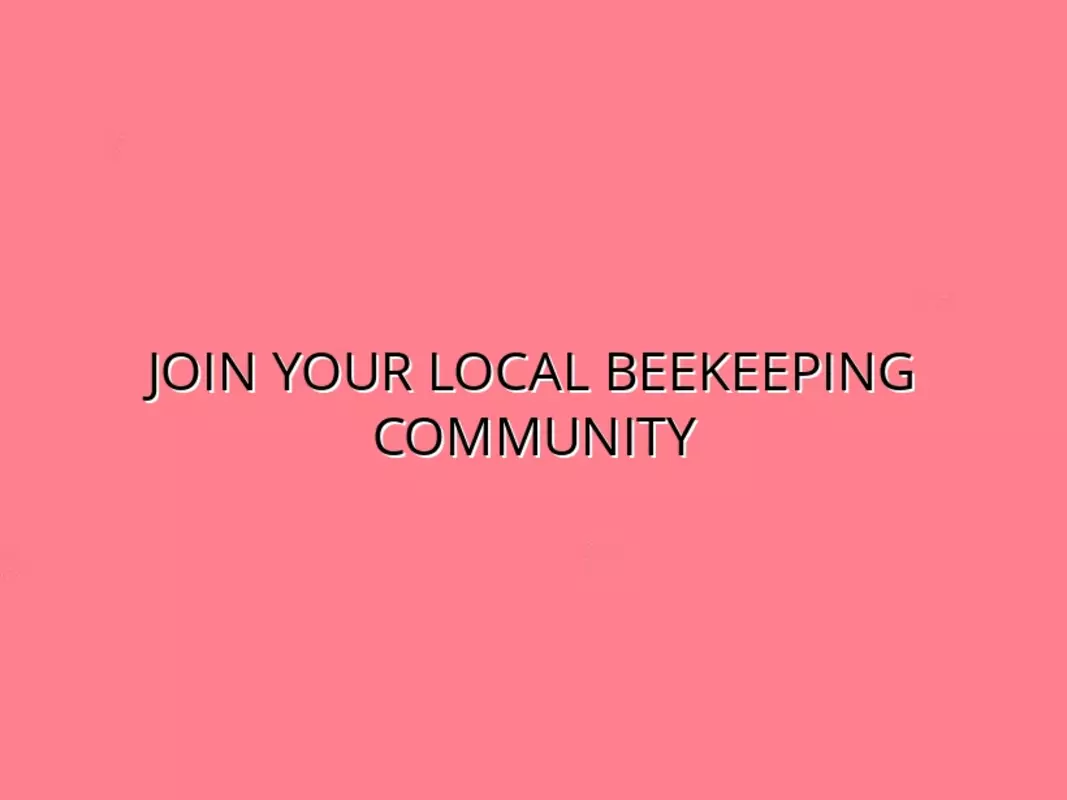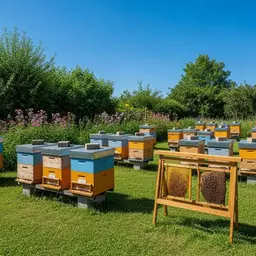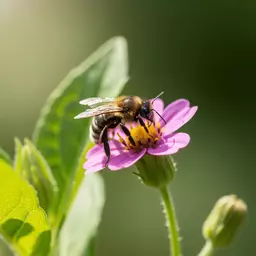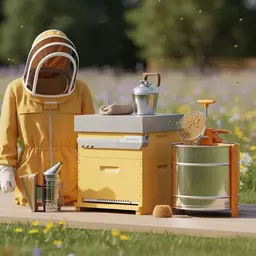Eco-Friendly Beekeeping Products Guide

Are you ready to transform your beekeeping practices and contribute to a healthier planet? The shift towards eco-friendly methods is not just beneficial for bees; it can drastically improve the ecosystem as a whole. Let’s explore the essential lessons that every beekeeper can learn from sustainable practices!
What You Will Learn
- Sustainable beekeeping practices help reduce harmful environmental impacts.
- Eco-friendly choices support healthier bee populations and improve hive resilience.
- Using organic pest control methods enhances pollination capabilities and reduces chemical exposure.
- Investing in eco-friendly products fosters community engagement and promotes biodiversity.
- Durable eco-friendly gear leads to less waste and better hive management.
- Joining local beekeeping associations provides valuable resources and support for sustainable practices.
- Participation in workshops enhances understanding and application of eco-friendly methods.
Key Impacts and Advantages of Eco-Friendly Beekeeping
This visual highlights the core benefits of sustainable beekeeping practices, emphasizing their direct support for bee populations and long-term environmental advantages. For more insights on setting up a sustainable apiary, check out our guide on setting up a sustainable apiary.
▶ How Sustainable Choices Support Bee Populations & Environment
- ✓ Promotes healthier bee colonies (less chemicals)
- ✓ Encourages biodiversity (natural materials)
- ✓ Supports local economies (sustainable sourcing)
- ✓ Fosters community engagement & conservation
▶ Long-Term Advantages of Investing in Eco-Friendly Gear
- ✓ Gear lasts longer (less waste)
- ✓ Improved hive management (higher functionality)
- ✓ Enhanced bee health (better care)
- ✓ Contributes to a more sustainable beekeeping approach
▶ Community Supported Beekeeping Initiatives
- ✓ Participate in local clean-up events
- ✓ Engage in community planting projects
- ✓ Share resources & knowledge via forums
- ✓ Attend eco-conscious beekeeping workshops
Understanding the Importance of Eco-Friendly Beekeeping
As a passionate apiarist, I’ve seen firsthand how critical sustainable beekeeping practices are for our beloved honey bees and the environment. Eco-friendly beekeeping is not just a trend; it’s a necessary approach for ensuring the health and longevity of bee populations. By integrating sustainability into our practices, we can create a thriving ecosystem for bees and other pollinators.

Every time we make a conscious choice in our beekeeping methods, we contribute to a larger cause. It’s about protecting biodiversity and ensuring that our bees have a healthy environment to flourish. So, why does sustainability matter in beekeeping? Let’s dive into that!
Why Sustainability Matters in Beekeeping Practices
Sustainability in beekeeping goes beyond just protecting bees; it’s about nurturing the entire ecosystem. When we prioritize eco-friendly practices, we are helping to combat issues like habitat loss, pesticide use, and climate change. Here are some key reasons why sustainability matters:
- Reduces harmful environmental impacts
- Supports healthy bee populations
- Promotes biodiversity in local flora and fauna
- Encourages responsible resource management
By adopting these sustainable practices, we also set an example for future generations of beekeepers. It’s all about creating a culture of awareness and respect for our natural surroundings—something I hold dear at Nectar Network.
The Impact of Eco-Friendly Choices on Bee Health and Ecosystem
Making eco-friendly choices has a direct impact on bee health and the surrounding ecosystem. For instance, using organic methods for pest control can significantly improve the overall health of your hives. Here’s a closer look at how these choices benefit our buzzing friends:
- Improved hive resilience against diseases
- Stronger immune systems for bees
- Enhanced pollination capabilities for surrounding plants
- Decreased risk of chemical exposure
As we cultivate a more eco-conscious beekeeping approach, we not only aid our bees but also contribute to the vitality of our entire environment. With every action we take, we’re weaving a tapestry of sustainability that supports not just bees, but the intricate web of life they help sustain.
Essential Eco-Friendly Beekeeping Products for Sustainable Practices
Now that we’ve explored the importance of sustainability, let’s turn our focus towards the tools that can make eco-friendly beekeeping easier. Choosing the right products not only supports the health of your bees but also aligns with a greener philosophy. Below, I’ve compiled some essential eco-friendly beekeeping products that every beekeeper should consider!
Interactive Poll: Your Eco-Friendly Practices
We'd love to hear from you! What eco-friendly practices do you currently incorporate into your beekeeping? Select all that apply:
Summarizing the Benefits of Eco-Friendly Beekeeping Products
As an avid apiarist, I can't emphasize enough the importance of choosing eco-friendly beekeeping products. These sustainable choices not only benefit our buzzing companions but also enhance the overall health of our ecosystems. By investing in products that are made from sustainable materials, we can directly support bee populations, creating a harmonious relationship with nature.
Moreover, eco-friendly products often come with the added bonus of being non-toxic and safe for both bees and humans. This means when we choose these items, we contribute to the preservation of our environment, ensuring that future generations can also enjoy the sweet rewards of beekeeping! Consider exploring beginner beekeeping kits that prioritize eco-friendly materials.
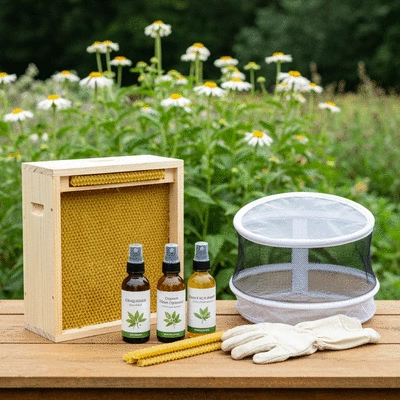
How Sustainable Choices Support Bee Populations and the Environment
- Promote healthier bee colonies by reducing exposure to harmful chemicals.
- Encourage biodiversity by using natural materials that blend into the ecosystem.
- Support local economies through sustainable sourcing and production.
- Foster community engagement and awareness about the importance of conservation.
These sustainable choices play a crucial role in not just the survival of our bees but also in maintaining the delicate balance of our environmental ecosystems. By opting for eco-friendly practices, we are actively participating in the fight against climate change and habitat destruction, making a lasting impact.
The Long-Term Advantages of Investing in Eco-Friendly Gear
Choosing eco-friendly gear has significant long-term benefits for both beekeepers and bees. First and foremost, these products often last longer, which means less waste. By investing in durable gear, we avoid the cycle of constant replacement and contribute to a more sustainable approach to beekeeping.
Additionally, eco-friendly products frequently come with higher functionality and efficiency, leading to improved hive management. This not only enhances our productivity but also ensures that we are caring for our bees in the best way possible. It's a win-win for everyone involved!
Engaging with the Eco-Friendly Beekeeping Community
Encouraging Sustainable Practices Among Beekeepers
As part of the Nectar Network community, I always advocate for the importance of sharing knowledge and encouraging sustainable practices among fellow beekeepers. We all have a role to play in creating a greener future, and by working together, we can amplify our impact.
Call to Action: Start Your Journey Towards a Greener Apiary Today
Are you ready to take your beekeeping to the next level? I invite you to explore eco-friendly options that not only benefit your bees but also the planet. Start by evaluating the products you currently use and consider making small changes that support sustainability.
Joining Local Beekeeping Associations for Sustainable Practices
Becoming part of a local beekeeping association can significantly enhance your understanding of sustainable practices. These groups often host workshops, discussions, and initiatives focused on environmentally friendly beekeeping. It's a great way to connect with like-minded individuals who share the same passion for both bees and conservation!
Community Supported Beekeeping Initiatives and Their Impact
- Participate in local clean-up events to enhance bee habitats.
- Engage in community planting projects that boost floral resources for bees.
- Share resources and knowledge through community forums and meet-ups.
These initiatives create a sense of belonging and empowerment, helping us realize that we are not alone in our efforts to protect our precious pollinators.
Participating in Eco-Conscious Beekeeping Workshops
Workshops are an excellent opportunity to learn from experienced beekeepers and environmentalists about sustainable practices. They often cover a range of topics from organic pest control to the importance of local flora in supporting bee health. By participating, we can gain new insights and tools to create a more sustainable apiary. For further reading on organic pest control, you might find our article on sustainable beekeeping for healthy hives particularly useful.
So, let’s keep the conversation buzzing! Let’s encourage each other and share our experiences in the world of eco-friendly beekeeping. Together, we can create a brighter future for our bees and the environment! 🐝🌼
Frequently Asked Questions About Eco-Friendly Beekeeping
Q: What is eco-friendly beekeeping?
A: Eco-friendly beekeeping is an approach that prioritizes the health and longevity of bee populations and the surrounding environment by using sustainable practices, reducing harmful impacts, and promoting biodiversity.
Q: Why is sustainability important in beekeeping?
A: Sustainability in beekeeping is crucial because it helps combat issues like habitat loss, pesticide use, and climate change. It supports healthy bee populations, promotes biodiversity, and encourages responsible resource management for future generations.
Q: How do eco-friendly choices impact bee health?
A: Eco-friendly choices, such as using organic pest control, lead to improved hive resilience against diseases, stronger immune systems for bees, enhanced pollination capabilities, and decreased risk of chemical exposure.
Q: What are the benefits of investing in eco-friendly beekeeping gear?
A: Investing in eco-friendly gear offers long-term advantages such as increased durability, leading to less waste, higher functionality, improved hive management, and better overall care for bees. It contributes to a more sustainable beekeeping approach.
Q: How can I get involved with the eco-friendly beekeeping community?
A: You can engage with the eco-friendly beekeeping community by joining local beekeeping associations, participating in community initiatives like clean-up events and planting projects, sharing knowledge in forums, and attending eco-conscious beekeeping workshops.
Recap of Key Points
Here is a quick recap of the important points discussed in the article:
- Sustainable beekeeping practices are essential for the health and longevity of bee populations and the environment.
- Eco-friendly choices contribute to improved hive resilience, stronger bee immune systems, and decreased chemical exposure.
- Investing in eco-friendly beekeeping products promotes biodiversity and supports local economies.
- Engaging with the beekeeping community fosters knowledge sharing and enhances sustainable practices.
- Participating in workshops and local associations helps beekeepers adopt more eco-conscious methods.
